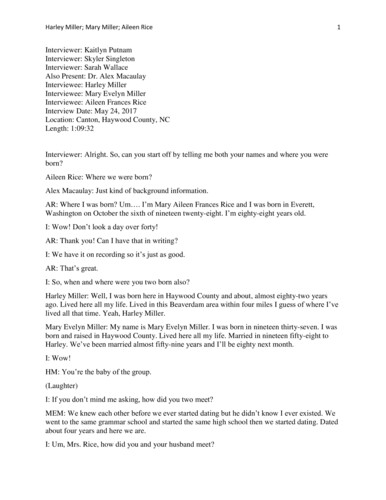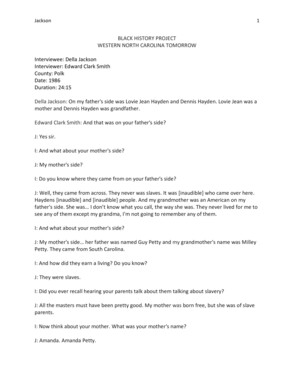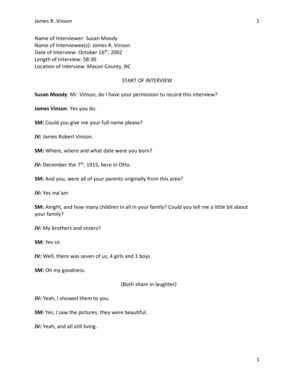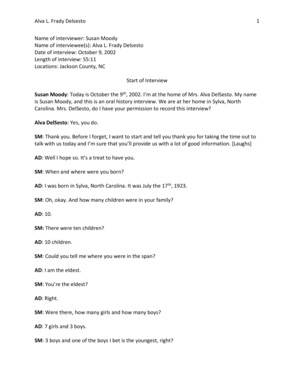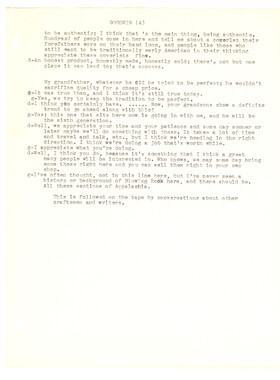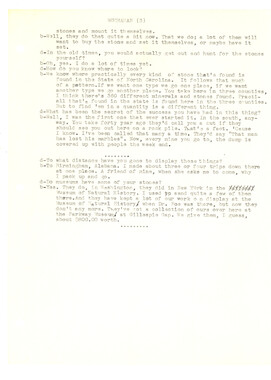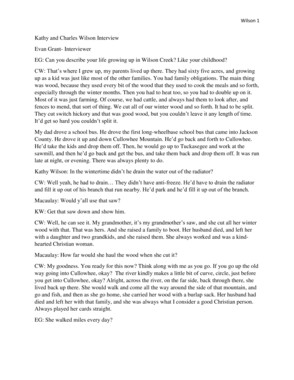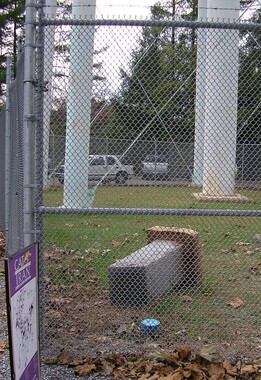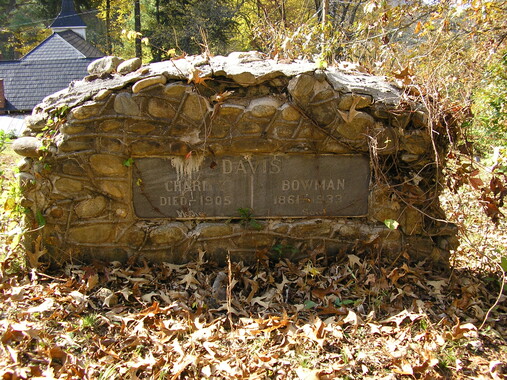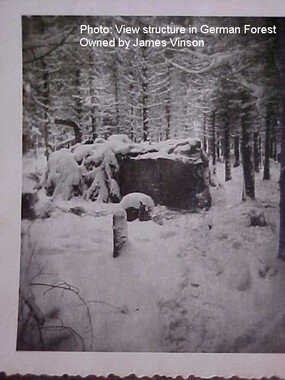Western Carolina University (20)
View all
- Canton Champion Fibre Company (2308)
- Cherokee Traditions (293)
- Civil War in Southern Appalachia (165)
- Craft Revival (1942)
- Great Smoky Mountains - A Park for America (2767)
- Highlights from Western Carolina University (430)
- Horace Kephart (941)
- Journeys Through Jackson (154)
- LGBTQIA+ Archive of Jackson County (26)
- Oral Histories of Western North Carolina (314)
- Picturing Appalachia (6772)
- Stories of Mountain Folk (413)
- Travel Western North Carolina (160)
- Western Carolina University Fine Art Museum Vitreograph Collection (129)
- Western Carolina University Herbarium (92)
- Western Carolina University: Making Memories (708)
- Western Carolina University Publications (2283)
- Western Carolina University Restricted Electronic Theses and Dissertations (146)
- Western North Carolina Regional Maps (71)
- World War II in Southern Appalachia (131)
University of North Carolina Asheville (6)
View all
- Allanstand Cottage Industries (62)
- Appalachian National Park Association (53)
- Bennett, Kelly, 1890-1974 (1388)
- Berry, Walter (76)
- Brasstown Carvers (40)
- Carver, George Washington, 1864?-1943 (26)
- Cathey, Joseph, 1803-1874 (1)
- Champion Fibre Company (233)
- Champion Paper and Fibre Company (297)
- Cherokee Indian Fair Association (16)
- Cherokee Language Program (22)
- Crowe, Amanda (40)
- Edmonston, Thomas Benton, 1842-1907 (7)
- Ensley, A. L. (Abraham Lincoln), 1865-1948 (275)
- Fromer, Irving Rhodes, 1913-1994 (70)
- George Butz (BFS 1907) (46)
- Goodrich, Frances Louisa (120)
- Grant, George Alexander, 1891-1964 (96)
- Heard, Marian Gladys (60)
- Kephart, Calvin, 1883-1969 (15)
- Kephart, Horace, 1862-1931 (313)
- Kephart, Laura, 1862-1954 (39)
- Laney, Gideon Thomas, 1889-1976 (439)
- Masa, George, 1881-1933 (61)
- McElhinney, William Julian, 1896-1953 (44)
- Niggli, Josephina, 1910-1983 (10)
- North Carolina Park Commission (105)
- Osborne, Kezia Stradley (9)
- Owens, Samuel Robert, 1918-1995 (11)
- Penland Weavers and Potters (36)
- Roberts, Vivienne (15)
- Roth, Albert, 1890-1974 (142)
- Schenck, Carl Alwin, 1868-1955 (1)
- Sherrill's Photography Studio (2565)
- Southern Highland Handicraft Guild (127)
- Southern Highlanders, Inc. (71)
- Stalcup, Jesse Bryson (46)
- Stearns, I. K. (213)
- Thompson, James Edward, 1880-1976 (226)
- United States. Indian Arts and Crafts Board (130)
- USFS (683)
- Vance, Zebulon Baird, 1830-1894 (1)
- Weaver, Zebulon, 1872-1948 (58)
- Western Carolina College (230)
- Western Carolina Teachers College (282)
- Western Carolina University (1794)
- Western Carolina University. Mountain Heritage Center (18)
- Whitman, Walt, 1819-1892 (10)
- Wilburn, Hiram Coleman, 1880-1967 (73)
- Williams, Isadora (3)
- Cain, Doreyl Ammons (0)
- Crittenden, Lorraine (0)
- Rhodes, Judy (0)
- Smith, Edward Clark (0)
- Appalachian Region, Southern (2399)
- Asheville (N.C.) (1917)
- Avery County (N.C.) (26)
- Blount County (Tenn.) (161)
- Buncombe County (N.C.) (1671)
- Cherokee County (N.C.) (283)
- Clay County (N.C.) (555)
- Graham County (N.C.) (233)
- Great Smoky Mountains National Park (N.C. and Tenn.) (510)
- Haywood County (N.C.) (3522)
- Henderson County (N.C.) (70)
- Jackson County (N.C.) (4692)
- Knox County (Tenn.) (25)
- Knoxville (Tenn.) (12)
- Lake Santeetlah (N.C.) (10)
- Macon County (N.C.) (420)
- Madison County (N.C.) (211)
- McDowell County (N.C.) (39)
- Mitchell County (N.C.) (132)
- Polk County (N.C.) (35)
- Qualla Boundary (981)
- Rutherford County (N.C.) (76)
- Swain County (N.C.) (2113)
- Transylvania County (N.C.) (247)
- Watauga County (N.C.) (12)
- Waynesville (N.C.) (73)
- Yancey County (N.C.) (72)
- Aerial Photographs (3)
- Aerial Views (60)
- Albums (books) (4)
- Articles (1)
- Artifacts (object Genre) (228)
- Bibliographies (1)
- Biography (general Genre) (2)
- Cards (information Artifacts) (38)
- Clippings (information Artifacts) (191)
- Crafts (art Genres) (622)
- Depictions (visual Works) (21)
- Design Drawings (1)
- Drawings (visual Works) (184)
- Envelopes (73)
- Facsimiles (reproductions) (1)
- Fiction (general Genre) (4)
- Financial Records (12)
- Fliers (printed Matter) (67)
- Glass Plate Negatives (381)
- Guidebooks (2)
- Internegatives (10)
- Interviews (812)
- Land Surveys (102)
- Letters (correspondence) (1013)
- Manuscripts (documents) (619)
- Maps (documents) (177)
- Memorandums (25)
- Minutes (administrative Records) (59)
- Negatives (photographs) (5835)
- Newsletters (1285)
- Newspapers (2)
- Occupation Currency (1)
- Paintings (visual Works) (1)
- Pen And Ink Drawings (1)
- Periodicals (193)
- Personal Narratives (10)
- Photographs (12976)
- Plans (maps) (1)
- Poetry (7)
- Portraits (1960)
- Postcards (329)
- Programs (documents) (151)
- Publications (documents) (2237)
- Questionnaires (65)
- Scrapbooks (282)
- Sheet Music (2)
- Slides (photographs) (402)
- Songs (musical Compositions) (2)
- Sound Recordings (796)
- Specimens (92)
- Speeches (documents) (15)
- Tintypes (photographs) (8)
- Transcripts (322)
- Video Recordings (physical Artifacts) (23)
- Vitreographs (129)
- Text Messages (0)
- A.L. Ensley Collection (275)
- Appalachian Industrial School Records (7)
- Appalachian National Park Association Records (336)
- Axley-Meroney Collection (2)
- Bayard Wootten Photograph Collection (20)
- Bethel Rural Community Organization Collection (7)
- Blumer Collection (5)
- C.W. Slagle Collection (20)
- Canton Area Historical Museum (2110)
- Carlos C. Campbell Collection (282)
- Cataloochee History Project (65)
- Cherokee Studies Collection (4)
- Daisy Dame Photograph Album (5)
- Daniel Boone VI Collection (1)
- Doris Ulmann Photograph Collection (112)
- Elizabeth H. Lasley Collection (1)
- Elizabeth Woolworth Szold Fleharty Collection (4)
- Frank Fry Collection (95)
- George Masa Collection (173)
- Gideon Laney Collection (452)
- Hazel Scarborough Collection (2)
- Hiram C. Wilburn Papers (28)
- Historic Photographs Collection (236)
- Horace Kephart Collection (861)
- Humbard Collection (33)
- Hunter and Weaver Families Collection (1)
- I. D. Blumenthal Collection (4)
- Isadora Williams Collection (4)
- Jesse Bryson Stalcup Collection (47)
- Jim Thompson Collection (224)
- John B. Battle Collection (7)
- John C. Campbell Folk School Records (80)
- John Parris Collection (6)
- Judaculla Rock project (2)
- Kelly Bennett Collection (1407)
- Love Family Papers (11)
- Major Wiley Parris Civil War Letters (3)
- Map Collection (12)
- McFee-Misemer Civil War Letters (34)
- Mountain Heritage Center Collection (4)
- Norburn - Robertson - Thomson Families Collection (44)
- Pauline Hood Collection (7)
- Pre-Guild Collection (2)
- Qualla Arts and Crafts Mutual Collection (12)
- R.A. Romanes Collection (681)
- Rosser H. Taylor Collection (1)
- Samuel Robert Owens Collection (94)
- Sara Madison Collection (144)
- Sherrill Studio Photo Collection (2558)
- Smoky Mountains Hiking Club Collection (616)
- Stories of Mountain Folk - Radio Programs (374)
- The Reporter, Western Carolina University (510)
- Venoy and Elizabeth Reed Collection (16)
- WCU Gender and Sexuality Oral History Project (32)
- WCU Mountain Heritage Center Oral Histories (25)
- WCU Oral History Collection - Mountain People, Mountain Lives (71)
- WCU Students Newspapers Collection (1744)
- Western North Carolina Tomorrow Black Oral History Project (69)
- William Williams Stringfield Collection (2)
- Zebulon Weaver Collection (109)
- African Americans (390)
- Appalachian Trail (35)
- Artisans (521)
- Cherokee art (84)
- Cherokee artists -- North Carolina (10)
- Cherokee language (21)
- Cherokee pottery (101)
- Cherokee women (208)
- Church buildings (167)
- Civilian Conservation Corps (U.S.) (110)
- College student newspapers and periodicals (1830)
- Dams (103)
- Dance (1023)
- Education (222)
- Floods (61)
- Folk music (1015)
- Forced removal, 1813-1903 (2)
- Forest conservation (220)
- Forests and forestry (921)
- Gender nonconformity (4)
- Great Smoky Mountains National Park (N.C. and Tenn.) (181)
- Hunting (38)
- Landscape photography (10)
- Logging (103)
- Maps (84)
- Mines and mineral resources (8)
- North Carolina -- Maps (18)
- Paper industry (38)
- Postcards (255)
- Pottery (135)
- Railroad trains (71)
- Rural electrification -- North Carolina, Western (3)
- School integration -- Southern States (2)
- Segregation -- North Carolina, Western (5)
- Slavery (5)
- Sports (452)
- Storytelling (245)
- Waterfalls -- Great Smoky Mountains (N.C. and Tenn.) (66)
- Weaving -- Appalachian Region, Southern (280)
- Wood-carving -- Appalachian Region, Southern (328)
- World War, 1939-1945 (173)
Interview with Harley Miller, Mary Evelyn Miller, and Aileen Rice
Item
Item’s are ‘child’ level descriptions to ‘parent’ objects, (e.g. one page of a whole book).
-
-
Harley Miller; Mary Miller; Aileen Rice 1 Interviewer: Kaitlyn Putnam Interviewer: Skyler Singleton Interviewer: Sarah Wallace Also Present: Dr. Alex Macaulay Interviewee: Harley Miller Interviewee: Mary Evelyn Miller Interviewee: Aileen Frances Rice Interview Date: May 24, 2017 Location: Canton, Haywood County, NC Length: 1:09:32 Interviewer: Alright. So, can you start off by telling me both your names and where you were born? Aileen Rice: Where we were born? Alex Macaulay: Just kind of background information. AR: Where I was born? Um…. I’m Mary Aileen Frances Rice and I was born in Everett, Washington on October the sixth of nineteen twenty-eight. I’m eighty-eight years old. I: Wow! Don’t look a day over forty! AR: Thank you! Can I have that in writing? I: We have it on recording so it’s just as good. AR: That’s great. I: So, when and where were you two born also? Harley Miller: Well, I was born here in Haywood County and about, almost eighty-two years ago. Lived here all my life. Lived in this Beaverdam area within four miles I guess of where I’ve lived all that time. Yeah, Harley Miller. Mary Evelyn Miller: My name is Mary Evelyn Miller. I was born in nineteen thirty-seven. I was born and raised in Haywood County. Lived here all my life. Married in nineteen fifty-eight to Harley. We’ve been married almost fifty-nine years and I’ll be eighty next month. I: Wow! HM: You’re the baby of the group. (Laughter) I: If you don’t mind me asking, how did you two meet? MEM: We knew each other before we ever started dating but he didn’t know I ever existed. We went to the same grammar school and started the same high school then we started dating. Dated about four years and here we are. I: Um, Mrs. Rice, how did you and your husband meet? Harley Miller; Mary Miller; Aileen Rice 2 AR: Um, he came back from the Navy. He was from Rice Cove, which is on up about two miles up the road. And I was from Clyde, but I was born in the state of Washington and my father died. He had gone out there…he was from Haywood County; his mother was from Haywood. I mean, his wife was from Haywood County and they had gone out there to get work in the logging industry. And my father got a job with the Great Northern Railway and he died out there and I was five months old. My brother was five years old. And we came back to Haywood County and from the blessings of the . . . the Great Northern Railway paid our way. And that’s how we got back to Haywood County. I: What was your husband’s name again? AR: My husband’s name was Jack Rice and he was in the service at the end of World War II and he just came back and that’s when we met. We weren’t too far apart but it was just by chance. We were married sixty-four years and he’s been dead almost three years. But, he was originally from…born in Rice Cove which is about, up the road about two miles I: Okay. So, since you guys have lived in Canton pretty much your whole lives, how has it changed over the years? HM: Not a whole lot really. The mill is the biggest employer in this part of the country and my father worked there. When I was young I can remember…way back, I can remember . . . When he came here, I think, or when he went to work at the mill. I hadn’t been born yet, but I have five sisters and one brother. Three of my sisters were already born before he went to work at the mill and he worked there for about thirty-three years. For myself, I had my own business, very small business. But I did commercial art and signs. That’s when it was all done by hand. I retired about ten or twelve years ago and now it’s mostly computerized. So, you don’t see sign painters out painting very much anymore but that’s what I did. A lot of things have changed in that respect. It’s a computerized world now and it’s a great thing. I: Did you work at the paper plant at all? HM: No. I: No, just the signs? HM: Yeah. AR: But Mary Evelyn did. MEM: Yes, I have seen the town of Canton change quite a bit because we used to have a lot of stores down there. They’re vacant buildings now, you know, things moved on. But I’ve worked at Champion for a little over forty-eight years. And I saw a lot of changes in the town and um…that’s about it. I: What was a normal day of work for you like? MEM: Well, I worked in the office, so I didn’t really get out into the mill much. But it was from eight to…well, to begin with it was eight to five and then it was seven to four-thirty. I worked in the office in the engineering and maintenance department. And I saw a lot of engineers doing typing and filing and things like that. I: Mrs. Rice, what was your job here in Canton? Harley Miller; Mary Miller; Aileen Rice 3 AR: I worked for the Haywood County. I was at Pisgah twenty years. Retired from there and… MEM: Hospital. AR: Oh, and the hospital. Well, I’ll get straight in a minute. I went to Clyde High School and of course, that was when we met, my husband, and he worked forty-one years…I didn’t tell that, at Champion. But, I worked for Pisgah High School. Worked in the guidance department as secretary and retired from there. And we had three daughters. I: So, what were this community’s concerns with the paper plant before dumping, or the issue came up? HM: Before this came up? We didn’t have any great concerns. I know when this first came up, we had a pastor at our church at the time and on Wednesday night’s service he came in and he had been to, I don’t know, some meeting somewhere. An environmental meeting or something. He had heard about this DOT…DOE considering this dump site on over the mountains here in the Sandy Mush area. And he brought that to our attention and from then on, I don’t know how long, we were real disturbed about it because it meant this and anything in that proximity was going to have to be moved out, people, and it would have affected this community the same. People would have to go somewhere else to live and we didn’t think that was a good idea. The DOE is not bad people or anything, but we just thought it was a bad choice of place to have a dump site for nuclear waste. I: And what year was this that this came to your attention from your pastor? HM: What was it? AR: Nineteen eighty-six. January the twenty…he announced it January the twenty-sixth in the Sunday morning service and everybody heard it. And of course, we were excited, and we didn’t know what to expect. That was the thing. But, we got to work pretty quick and we started having meetings. We had called meetings. We had planned meetings, we had press releases and we had everything just…and it just kept going. And we wanted people to get interested in what was happening to us so… I: Can you kind of describe what nuclear dumping is and kind of go a little more in depth about what it would affect in this area? AR: It was high level and we had to keep telling people it was high level. They thought at first that it was low level and we kept…he told us that we needed to say high level because that’s what it was. The high level spent nuclear rods that would be buried over there. That’s…I didn’t mean to jump in but…that was our first. I’ll never forget that Sunday. Never. But it woke up Beaverdam and it woke up Western North Carolina and it woke up the states around us where people weren’t aware of all of this going on and what was going to happen to us. But they soon become notified what happened…what was going to happen. I: So, how did you hear about the waste being dumped into the river? HM: What is… I: I said how did you hear about the waste first being dumped into the river? Like how did you find out about it? Harley Miller; Mary Miller; Aileen Rice 4 AR: It wasn’t dumped. It was not dumped. I: I mean, how did you find out that it was supposed to be dumped? AR: No, it wasn’t going to be dumped in the river. It was going to be buried over here on Sandy Mush. Sandy Mush was kind of a bowl and in some of these pictures you can see the bowl where they were going to be…we were in the buffer zone. All the way the buffer zone went to I-40. Everything north of I-40. Was that right Harley? HM: Yeah, it was. Yeah. AR: For us. For us, of course, it reached two more counties so… HM: The Sandy Mush communities are in Buncombe County and it’s…you keep going straight on this road, you’ll cross over it and go into it. It’s a big community over there. Farming communities. It’s a beautiful place and that’s where they were thinking about making the…what is it called…repository, I believe is what they referred to it. And that meant drilling and putting these things in casks or something like that. Putting it deep into the earth and that’s basically how it was going to be handled. I: So, what exactly…you mentioned a buffer zone. What exactly is that? HM: That’s the area outside of the, I guess, the dumping area. That would be a buffer zone but there’s people that would have to move out of the buffer zone. I: So, is it the area of protection, essentially between the radioactive nuclear waste and essentially the rest of the surrounding communities? HM: That’s the way I understand it. Yes. I: Okay. I just wanted to make sure that I understand it. Okay, what were your individual roles within BAND? AR: Pardon? I: What were your individual roles within BAND? MEM: Just a member of the group. AR: It was…the group was getting bigger and bigger. MEM: We had someone who convened all the meetings. Reverend Kyles Wallace did it part of the time and we had a leader . . . Who was the leader at that time? AR: Um, she was from Brevard. MEM: No, I mean from this group. AR: Oh, this group. HM: Beaverdam. AR: The first one we started. Well, it was… MEM: Was it Holly? Harley Miller; Mary Miller; Aileen Rice 5 AR: No, it wasn’t Holly. What about…one of the first ones, I don’t know whether he was the first, is the one that lived in Rice Cove… MEM: Everett. AR: Everett. HM: Mike Everett. AR: Mike Everett was one at one time. MEM: I don’t think he was at the beginning. AR: But, it wasn’t the beginning. I can’t remember Well, Kyles…he got his doctorate while this was going on. HM: He was kind of the convener. AR: He was convener. He called himself a convener and he lead us for a while but then somebody else took over and I can’t even remember who. I’m sure it would be in that container I’ve got in the basement of all these happenings. It’s in a big plastic container in the basement and it’s going to go to the museum downtown. When they get some volunteers to work on it. They’re working on it. I: So, when was BAND fully created/organized to what it kind of became? AR: It was…well, there’s not a date on it. I don’t know when it…we named it pretty early. We had a lot of names and that’s what we came up with. HM: Beaverdam had some nuclear dumping as well. How that came up… AR: Yes. MEM: Well, I guess, it was probably around February. Probably around February nineteen eighty-six because we had our first meeting. It was scheduled after he made the announcement in the church and we decided then to name it BAND Beaverdam Against Nuclear Dumping. And it was of course, a grassroots organization and then there were two other communities. CANT, Crabtree Against Nuclear Trash and… AR: There’s several more in Haywood County. MEM: Sandy Mush…I can’t remember what they called themselves. AR: Crabtree was CANT and one was HALT. MEM: And there were some others in Madison County and also Buncombe County. But it was already on in nineteen eighty-six. I don’t know the exact day. I: So, what exactly was BAND…to stop nuclear dumping of course but, what steps did you take to prevent nuclear dumping from happening? AR: One of the big things was getting this out to the people to let them know what was going on. MEM: We had letter writing campaigns. Harley Miller; Mary Miller; Aileen Rice 6 AR: Yes, to those politicians that we wanted them to know. We wanted our congressmen and everybody to know and even when we went to Washington, we were passing out our press releases which explained it. What we were…we were going to lose our homes. We were going to lose. We were going to move out. They came back to the cemeteries once or twice a year. They said we would be able to come back but we would have to go. AM: Why was this community picked? Why did they pick Beaverdam? AR: Well, the…what we were told when I asked the question, I can’t remember where it was…how did we get on this list? And they said that they told us that the Department of Energy had looked at places and they were looking at old geography books that said this area is sparsely settled. And that set us on fire and we divided up the sections of Beaverdam that…one of the first things I can remember doing was…I remember what my section was. It was Smathers Cove and Hillvilla and Bluebird Hill and everybody had a…and they were supposed to count houses. Well, you know, we counted them, and everybody turned theirs in. We had two hundred and eighty houses. But the books…they told us that the Department of Energy had looked at geography books. And they were old books. AM: And they never visited here? They just told you… AR: They had never visited. We had two hundred and eighty plus houses. Two hundred and eighty. I know, back here on these mountains, it was kind of hard to count and at that time Charlie Nichols was a developer and they told us we’ll just use, for instance, the place where he developed houses. There were fifty-five homes at that time. Fifty-five. And they said you can’t see them back in the mountains. Most of them were on at least seven acres so there’s more than that now. More than that fifty-five at that time. I: So, BAND was a non-profit organization? AR: It was. I: How did you guys get funding to go to Washington and Raleigh? MEM: We sold T-shirts, buttons… AR: Just anything we could do. HM: I helped with the visual aids like signs and that sort of thing through the community. Um, some pretty good-sized ones and stuff. And we had caps and T-shirts and all that sort of thing. Then they talked about the pristine water that’s here in the community and got some from the mountain up here that runs continuously. It comes out of the pipe up there and they bottled it up and put it in jars and put these little labels on them. AR: Harley made that. I: Oh my gosh, you made that? HM: Yeah. And in the parades, we had some vehicles in there and they talked about the domino effect of this thing happening and what else would happen after, you know, they started dumping. And we had a vehicle fixed up and it looked like dominoes all over it. Went through the parade and this…what they call a water wagon. It had a station wagon that went to Harley Miller; Mary Miller; Aileen Rice 7 Washington with some people in it and jars of water. And it was all decorated. Hubcaps and the whole thing I think. Done a lot of visual stuff. AR: Well, in the pictures you can see the hubcaps and what was on the windows. And we got a pretty good convoy going into Washington. HM: We had these meetings in Asheville too and a lot of environmental people…groups I think got involved. They can make a lot of noise. I never expected to be involved in that in any way. It was there, everybody was involved about it. AR: You didn’t have a choice. You just had to work. MEM: We didn’t have a lot of space to accommodate everybody. We met in the churches, in the communities. We had to rally in the parking lot, we didn’t have the space to have meetings. We didn’t have a community center like we do now. HM: It was absolutely amazing how this community and this area…surrounding communities got involved. You know, everybody was interested. AR: We had meetings. Most of them were in Beaverdam United Methodist Church and it’s in Rice Cove. And all of us three have belonged there for… MEM: Years. (Laughter) AR: Yeah, we won’t say. You know how old we are, so it doesn’t matter. But, really it was amazing. Like Harley said. How we came together. I look back on it and I don’t know how we did it. But we did have it. Our church wasn’t big enough, so we headed into the parking lots. Nobody parked in the parking lots, they parked on the roads and walked in because we pulled in a…the first one we had…we pulled in a flat-bed truck for the staging. Put the podium on there and we had people coming from places like Brevard and down east come to speak to us and tell us what we were facing. MEM: We also had quite a bit of coverage from the T.V. station and radio station. AR: We had good coverage. Some of the South Carolina stations came and we ended up and got a reward. Two hundred dollars in savings bonds from Channel 4. So, the word was out there, and people were calling. This is a little premature I’m telling this but if I don’t tell it while I’m thinking about it…we got some phone calls from some people here in the county, said that their families that lived in San Joaquin Valley in California had called and wanted to know what was going on in Haywood County. They had seen it on T.V. so we spoke with some pretty good…we had ABC, NBC, and all the big stations. We even made USA Today two weeks in a row. One was when we had the rock laying on the mountain and the other one for the water wagon to Washington. And it didn’t say Canton, it said Beaverdam. We came back, and we told…and when we came out Beaverdam, North Carolina. And told about the rock laying I guess it was. We told the mayor and them of Canton, that we were going to annex them. So, it was kind of a joke. HM: Well now, the rock laying was white rocks on the side of a hill over there that said, “No Dump.” Harley Miller; Mary Miller; Aileen Rice 8 AR: Yeah. And when the Secretary of the Interior came in, he came by helicopter. The reception was here, and he came by helicopter and could see it. Could see it on the ground and planes flying over could see it said, “No Dump.” You’ll see pictures. MEM: On that day, we had a…the day Mr. Hodel came. The Secretary of the Interior. We had a lot of school kids and a lot of people from the surrounding area on Jack and Aileen’s lawn over here. We had set up tables and had apple pie and what else did we have to eat? AR: Well, um… MEM: I thought that was all American. Apple pie. AR: We had apple pie and some of them said, “No Dump” and we cut them and put them on little…you can see the pictures of it in there. We put a little flag on there in each piece of apple pie. And we had a big striped tent. Now, that was…And you know, we just had a week to get ready for it, do you remember that Harley? HM: I can’t remember. AR: Well, we came back from Washington and they said Hodel was going to come down because we had been up there. He was the Secretary of the Interior and he’s coming to see how close this dump was going to be to the Smoky Mountains and everything. He came to see it and fly over it. They even went to Cherokee and all places. I: When you were in Washington, before the Secretary of the Interior came down, what was your goal up there? AR: We were going to twelve key offices that were on this nuclear…these were senators that were on that. And our congressmen, who was Bill Hendon in Washington was helping us and C.W. Harden…what was he a representative? He was from Canton. And we had to go…they set us up to go to all these places and we carried our jug of water, which the photographers that…everybody that met us, picked up on the news, I’m getting way ahead of myself. But, anyway, they…I forgot what I was going to say. When we got off the elevator for our appointment, we were there three days. And when we got off, they kidded us about bringing “White Lightning.” So, when we went to the offices, usually we had a table like this and he would come out…our congressman or whoever we had an appointment with, and we’d sit around, and we wanted them to know what was going on and we even went to…what was that senator we had? MEM: Jesse Helms. AR: Jesse Helms. Went to Jesse Helms office…we were treated the worst in Jesse Helms…we didn’t even get to see him. He sent one of his little aides out and we told him what we…we told the little aide to tell him and we came to get…we wanted him to know what was going on in his state. Yeah, but we didn’t get to see him. We were treated the worst. And I always said from that time on, I would tell people that we were not received well. We were in some of them but then the photographers…we’d get off the elevator. They had our list of what we were going to do. They told me to get on the datebook calendar as soon as we got to Washington. And I did. I called and gave them our schedule and they were there everyplace we went. And there would be about two or three different stations each time when we went. So, that’s how the people in California…so, we got the word out. And we got some back from Wilmington. I remember Harley Miller; Mary Miller; Aileen Rice 9 getting a call from a family in Wilmington and we got the call from, I think Kyles Wallace, got a call from California people. So, it was a busy time. I: Do you think that visit and you talking to your representatives really influenced their opinions and their ideas that they should be dumping here? AR: I do. HM: Yes. I’m sure it did. AR: And they…well, they said as much. You know, we got off of the…finally did get off of the list. Our names off but you know, we had a lot of people who didn’t think…they thought it would come back to haunt us. But, this is thirty-two years and it’s not come back. I: What do you mean by coming back to haunt you? AR: That they would come back when we had quieted down you know? When we had quit our fight. Quieted down while they said they thought people would lose interest. That we would lose interest and then they can come back in and do that. (Laughter) AR: Some of us are still kicking. But it was a once in a lifetime experience. I: Do you think that BAND has really kind of affected the policy that the government has against nuclear dumping across the nation with what you guys have done? AR: What do you think? Think it might have… MEM: I don’t know. It might have had something to do with it, but I really have no idea. It did for us at that particular time, but I don’t know. AM: Why do you think the media picked up the story to the extent that it did? I mean with all the local coverage and the national coverage, USA Today…I mean, it’s pretty impressive. The water wagon going up there. I’m sure that’s the last place to see a water wagon… MEM: Well, we did a lot of letter writing too. AR: Yeah, we put the word out. I mean, people were sitting up writing…Well, we got the word out whether it helped or not but… MEM: We spent many a late hours working on it when we were…most of us were employed too. AR: Yes. Full-time. Those of us that went to Washington… MEM: They had to get off their jobs… AR: Yeah, we…I was out four days. MEM: There were four of them. She and her husband, and a couple from the community. AR: And their names…of the couple was Ron and Linda Green. They were younger than Jack and I. But, we all had different things to do when we got to Washington and they were there. The local T.V. station was there and interviewed Ron Green, I remember that. Interviewed him in the Harley Miller; Mary Miller; Aileen Rice 10 parking lot. Got a picture of that too. I’ve got a lot of pictures that’s why I haven’t got them in a book. But anyway… MEM: You also met with Vice President Bush in Asheville. AR: Yeah, we did but I forgot we met with the Department of Energy, you know, in Washington. The twelve members and the Department of Energy but we had to be…it’s just like when the…we had the thing here, the reception for Donald P. Hodel and it was right there. The cars were parked in the hay fields. Well, they were cut. We had hay fields, but they parked there but we had to be approved and the principal called me to the office and told me to come home. That the Secret Service wanted to see the house the day before and Jack was working at Champion and Ron was working at Champion, so I came and went through the house. And there’s people here outside putting up the thing while we were working and these men in black suits were through the house. And everybody says, “Who is that? What’s going on?” I said, “We’re being inspected.” I said, “It’s not only me. It’s everybody that’s here. They’re looking if we’ve got any questionable means and do you know anybody that would want you to look bad?” And I said, “No, I didn’t know.” He said, “Do you know anybody that would want Donald P. Hodel to look bad?” Do you know, they mentioned Bill Hendon so they were into it and everybody that was going to see, they had to see. They came in the house, took pictures of the windows, went around the house and took pictures. And everybody said, “Who is that?” and I told them, I said, “Well, we’re all being looked at.” So, it’s the Secret Service. MEM: You had been investigated before, hadn’t you? AR: Oh yeah. We’d been investigated before and they mentioned something to me once. They said, “What about so and so” and I said, “I can’t think of anyone who would want me to look bad.” “Would anyone want your husband to look bad?” And then, I never could think of anybody. And then I thought of…then I knew what they knew something that I didn’t know, and they knew that we had a property dispute on a property line. It’s this property line that you came up the driveway. And those trees down there, they thought they owned what was our driveway. And I got a letter from…first thing we knew of anything going on…I got a letter from a lawyer in Sylva. He was a property lawyer. And they knew about that. And that had been probably five years before, they knew about it. And they kept on wanting me to say it and I didn’t say it because I couldn’t think of…They finally mentioned. Well, she and her son is what they mentioned. And when they said that I knew what it was…the property line. AM: Then they knew that all ready. AR: Oh, they knew that all ready. I told everybody. I said, “You better be proud that you passed the test.” So, it was…you know. Just another money thing that happened. AM: So, are we all going to be under investigation for talking to you? AR: Maybe. (Laughter) I: You mentioned meeting Vice President Bush in Asheville. Is that correct? AR: He was…that was the older Bush. I: Yes. Harley Miller; Mary Miller; Aileen Rice 11 AR: Yes. That was in…it was after we came home. After we had met him because I had pictures you know. We met. There’s some from Cherokee….there’s about four from Cherokee, I think and the four of us. And Sandy Mush had some people there and another group or two. And we met with…he was Vice President Bush at that time. And I’ve got pictures. In fact, there’s the picture of me and Jack and I gave Ron and Linda that one. You can open it up. I gave Ron and Linda their picture. AM: Did he seem pretty sympathetic to what y’all were trying to do or was he… AR: Oh, yeah. Like what do you mean? AM: Vice President Bush. He was… AR: Yeah. He was aware, and we had like three days to get ready for that, I remember. You know, Donald P. Hodel’s coming to…Nobody had a place big enough. And we had just cut…Jack had just cut the hay, so they had parked there, and they parked back here, and we had about three hundred and twenty…and the first person that came the day of the Hodel was coming. People were here working the very first day that…Early that morning, a reporter from the Knoxville Sentinel came that morning and he talked to us. Wrote some things then he went on up the road. It was not time because this was happening was going to be after lunch. About one. And so, the reporter went on to Rice Cove and was just wandering around and looking. And he interviewed Ed Bell and that’s the time that, do you remember the picture of the school bus coming around a curve in Rice Cove? It was in the paper. When he was interviewing Ed Bell, he took the picture and it made the paper. Did you ever see it? It was a good picture. It was a big picture. It was about that big in the newspaper and you had the winding road. He was up at Ed Bell’s and he took the picture as the school bus was coming. MEM: That was very close to the watershed. Where we all got our water from. You know, for drinking. AR: The watershed is about eight hundred seventy-five acres. And that’s in Rice Cove. And all the water, I hate to say this but, all the water that is here in Haywood…Beaverdam goes out. So, it would have gone into Tennessee and everywhere. Just because it was out of the buffer zone, it was still…people were still afraid. I mean… MEM: They would have been affected. AR: Yeah, they would have been affected. I: So, do you think that by having such large media coverage and being so involved with your representatives in Congress and the senators that was on this nuclear dumping committee, by being so involved with that, do you think that it helped the DOE who was thinking about making this nuclear dumping site kind of reverse their position and back pedal a little bit once they saw that you had gained so much traction and popularity? AR: I think so. HM: I think that’s true. I think anytime you have an issue like this, if you can organize and get to the right people. And it’s all connected to politics in one way or another. I mean, it filters back down there. And I think it makes a great difference and I think it did in this. I: Why did you guys think it was so successful, BAND? Harley Miller; Mary Miller; Aileen Rice 12 AR: Because it’s grassroots. HM: Well, possibly, yeah. It was the people right here in the area where all this is happening. MEM: The people would be affected. I: So, the community involvement. You’ve mentioned several times about how everybody came together and about how people kind of united about wanting to deal with this. Can you kind of just describe some of your own experiences with how the people would come together in such a strong and unified way? AR: Well, in this press release that we’re going to be giving, wherever it is…the one we passed out in Washington, will give you a list and you can read it. It’s somewhat… MEM: That’s the one that you can hardly read. AR: Yeah, it’s a lot but you can reprint it or something. Mary Evelyn made those at the last minute. I: Wow! That is really well written and very… AR: Well, I thought it was and I thought we needed to share. I only had one thing and I’ve got it in that. Mary Evelyn typed it again and printed it off so… MEM: I didn’t write it. I just typed it. That was my contribution. I: Wow! It says in here “Let it be known, we shall resist any and all efforts to take away the life we have in these mountains of Western North Carolina.” Do you feel like BAND was really kind of almost a movement of resistance with this? AR: Could be. Yeah. MEM: I guess so. HM: We certainly were resisting. AR: And because of that, we still stayed together, and we get moved into the phase. . . And we got our community center that Mary Evelyn mentioned. We’ve got down here the community center. MEM: Some of us worked together then to form an everyday community center. AR: Yeah. MEM: Not everybody did. Some. AM: The nucleus came from BAND for that organization? MEM: He said the nucleus came from BAND HM: The community organization. AR: Oh, yeah. I think so. AM: Did y’all have experience organizing something like this before, BAND? Harley Miller; Mary Miller; Aileen Rice 13 AR: No. AM: Y’all just kind of learned on the fly? Is that what it was? HM: Uh huh. We just kind of evolved out of it. AM: It’s pretty phenomenal. It comes after a church meeting and all. It gets national attention. MEM: Well, we also had a geologist in our area. AR: And he was from Canton. MEM: He was from Canton and knew a lot about the rock formation of the area, so he helped in the… AR: They taught us and then we sent a group…I don’t know who. I didn’t go. To Pisgah High School. These people had come. . . Well part of Pisgah High School was here that day and we sent them and a group. Kind of kept them up to date with what was going on and the new things we’ve found out that was happening because of this and I’ve got a picture of them somewhere that we went to Pisgah. Now I didn’t go. I was already out there. AM: Did you get the impression that this caught the Department of Energy by surprise? They weren’t ready for the kind of resistance y’all put up? AR: Oh, yeah. I don’t think they thought we would...they thought we would get tired and fizzle out. I’m using some mountain colloquial …but anyway. And I tell you, these signs helped a lot. I don’t know because we had pretty signs. I mean, with this one. Pass that over to him. And that’s one that…and I just found that one today when I was looking for something. And it’s by itself and I had to put it in a container. A little folder. MEM: One of these, the DOE hearing that was held in Nashville at the civic center, was on Friday and it started at nine o’clock in the morning and lasted until eleven fifteen at night. It had speakers from not only this community but the other communities around. Some of us were kind of tired. AR: I remember BAND had their thing in the arena and I remember this, and we’ve got the list of people. I didn’t count them, that spoke. And then we had two…they told us, we had two hundred and fifty speakers that day during that time. Some of them were in different parts of the auditorium and some of us were in the arena. And I know BAND was in the arena and somewhere in here is the list of people who went. Oh, here it is. Our speakers were Eva Jane Ashe, Ed Bell, Kyles Wallace, Aileen Rice, Hollace Hayes, James R. Hipps, Gene Scott, and we had a small child…I think that child was eight or nine and it was a little girl. Her name was Samantha, but I don’t know her last name. And she spoke too in between some of it. I: So, all the people who were speaking at this event, they were all talking about how their wider communities were against this nuclear dumping policy? AR: Yes. Talked about, you know, how it’s affecting like our water supply, that we had slate rock. You know, how the slides go down here and in the gorge so, we have a lot of that. MEM: There was also something about the fault. AR: The fault that ran through here. Yeah. Harley Miller; Mary Miller; Aileen Rice 14 MEM: Yes, the… AR: Is that the one that cut… MEM: I’m just going to… AR: Well, we can… HM: They talked about that and what would happen if there was a small earthquake even small one…it might run through. Break away some of this that was buried there and… AR: Sandy Mush is just right there at the top of the mountain and looking at it…If I knew where the picture was I’d show you. It might be in that. HM: It might break open the casks or whatever. It could happen. I: Oh, wow! That’s… HM: A lot of these environmental people are really smart… AR: This kind of comes down into the bowl. I thought I had one… HM: And that’s why it went so long. You couldn’t stop them. But in a sense, we were thankful having them. They were grabbing on to the point. I: Yeah. AM: Have y’all seen the hats and the bumper stickers around anymore? HM: No. AM: No, not much? AR: We saw one at Schulhofers after that… MEM: Junkyard. AM: Salvage yard. AR: At the junk yard, Jack was, my husband was hunting the piece for his old truck. Farm truck. We went to Schulhofers with him up there and looking through, walking through that junk yard. Saw a bumper sticker…one of our bumper stickers. I: Do you feel like the community still remembers what BAND has done though? HM: Oh, I think so. I mean you could mention it probably and they would remember. AR: It’s “Oh, I remember that.” But now some of them are gone, moved away and how come me too have so much is people have moved away and sent it back to me. Like the Everetts. They moved away, and I got it through the mail one day or somebody got it. I don’t remember how I got it, who it was sent to. But anyway, I ended up with it. MEM: Of course, that’s been over thirty years. A lot of us who were in it and involved in it can’t remember. (Laughter) Harley Miller; Mary Miller; Aileen Rice 15 AR: That’s the truth. MEM: I mean, there’s really not that many… HM: I haven’t even really had the opportunity or any kind of desire to try to remember it. (Laughter) HM: Here’s something that turned out well and that’s good. I: Yeah. MEM: I’m thankful for it and that it was over. AR: But, I’ve got to tell about the going to Washington and we had…you saw the water wagon in there. We were going up through Virginia and you know where the…I forget how many lanes this was going up there. It was pretty…going up into Washington. And we stopped at a…Well, before we stopped we gathered a motorcade of motorcycles and they were trying to figure out. . . They had chains on, had daggers on stuff and here was two on this side of us and two over here. And they reading what [unclear]. And then some behind us. There’s about fifteen of them. And we stopped at a rest stop because we were getting ready to go into Washington. They stopped too. And when we left, they left with us again and then we waved at them and they went on and we went into Washington. They waved at us. But, when it first happened I thought, “Oh.” (Laughter) AR: I looked that way. They were on each side of us, behind us. That was… HM: They wanted to join in. AM: Should have given them a button and a bumper sticker or a hat. AR: We would have sold it to them. (Laughter) I: Got to turn a profit somehow. AR: We called back every night and told them what office we had been in. It’s raining again. Anyway, we called back every night, told them what we had done, what’s going on. I: So, how does it feel knowing that you have been a part of this organization that started as grassroots and managed to make a drastic change in your community to stop something terrible from happening here? MEM: Well, I guess we are thankful for the contribution we made, if you want to call it a contribution or whatever we might have done to change their minds. I mean, what they might have got out of it to decide to pick somewhere else. AR: I hate to tell you this. We had a representative or something, I don’t know who he was. John Snow. Does anybody know him? He came. It was when we were having most of our church…meetings in the church at Beaverdam Methodist. And we had standing room only in the church. The groups . . . too small, we had to have the others outside. But, he came one of the nights and he had two children. Two of his children with him and they’d come from Murphy. Harley Miller; Mary Miller; Aileen Rice 16 And they came, and he said that they came, he wanted his children to know what a grassroots group was and so, I remember that. Well, that’s how come I remember his name. So, I remember all of that very well. I was much younger. MEM: Was he a judge or something? AR: I don’t know. He wasn’t I believe a judge, but he was some sort of…he’s in government. Politician. Yeah, I had to tell that. AM: Did y’all ever try to have a reunion? Everybody that was around still? One more time for apple pie? I: Apple pie, no dumping. (Laughter) MEM: We would have to come in walkers. HM: I just don’t have time to do the signs for it. I: All right, I don’t have any more questions. AR: I’ll see if I have another little tale to tell. Evelyn has a wonderful memory. MEM: No, I don’t. AR: I’ll find my notes somewhere. MEM: Well, this is yours right here. AR: Well, this is yours. Well now, that’s to give to them, isn’t it? And that’s got one of her…Mary Evelyn’s press release minutes of the meetings and it was a really good one I thought. And we put one in each one, didn’t we? I think we got in the middle. It’s stapled. Yeah, the minutes. Now, I want you to read just some of the people that we had. I couldn’t remember them talking to us. We had speakers come in from different places. Zirconia, North Carolina and people who knew what we were facing and tried to help us. Along with the geologist and Kyles Wallace. Give this to Mary Evelyn. I’ll find mine in the house somewhere. That’s yours Mary Evelyn. Are you girls seniors? I: I am. AR: You’re a senior? I: Yes. AR: Graduating when? I: Um, June 8th so like, two weeks. AR: Two weeks? Well, that’s great. I: Yeah, I’m excited. AR: What are you going to do then? I: I’m going to the University of North Carolina-Chapel Hill. Harley Miller; Mary Miller; Aileen Rice 17 AR: Oh, I had a daughter that went there. She went to the Peace Corps. Well, she graduated there and then she went to the Peace Corps and then came back to finish that. And she would be here today, she was dying to be here today. She lives in Greenville, South Carolina and she’s a realtor and she had to work so anyway. I: That would put a damper on it. AR: What grade are you? I: I’m in eleventh grade. AR: Eleven. What are you going to do? I: I have no idea. AR: Well, think about it. You have a little while to think about it. I: Yeah. Not too long. AM: Thank you very much for your time. We appreciate it. They’re going to have you sign this alright? A release forms. We have a piece of paper for y’all to sign. It’s a release form. That y’all know y’all were being taped and we’re going to transcribe them, and we’ll give you a copy of the transcription. AR: You’re going to have these at Western? AM: At Western and if you would like, we can also do Canton Historical Society. Would you like both places? AR: We would. AM: We could do that. No problem at all.
Object
Object’s are ‘parent’ level descriptions to ‘children’ items, (e.g. a book with pages).
-
After hearing that the Department of Energy was planning to locate a high level nuclear waste dumping site in the Sandy Mush area, Miller, Miller and Rice became involved with Beaverdam Against Nuclear Dumping (BAND). They talk about their successful grassroots campaign to reverse the Department of Energy’s decision which, had it gone forward, would have required the residents of Beaverdam to move away from the area.
-
